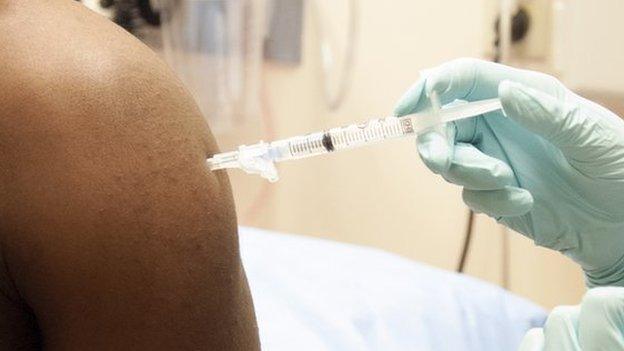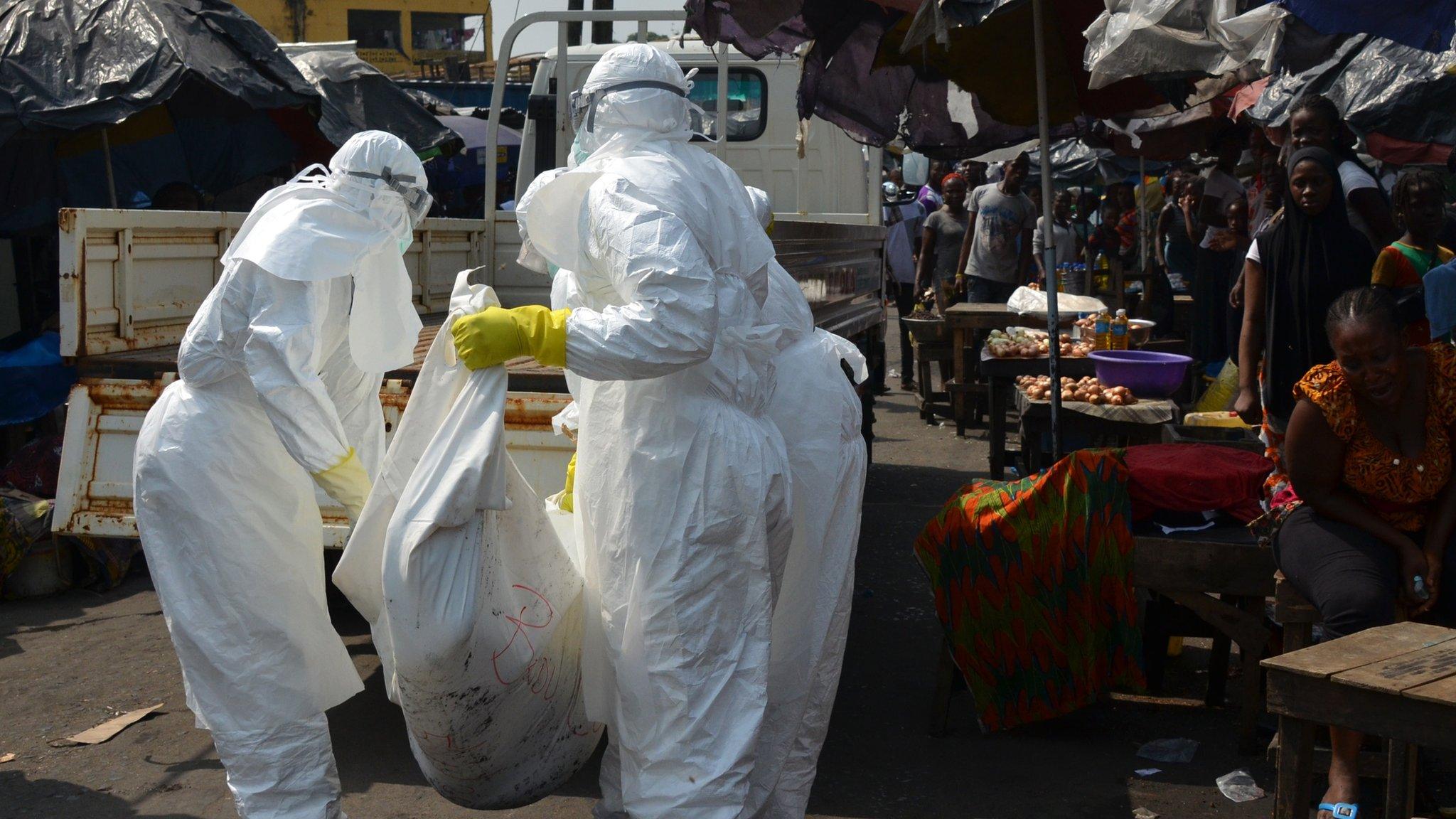Ebola trial suggests vaccine is safe
- Published
- comments
Volunteer Ruth Atkins: "If it is going to save lives that is just tremendous"
The first results of an experimental Ebola vaccine being tested in Oxford suggest it is safe.
Sixty healthy volunteers were immunised at the University of Oxford's Jenner Institute.
The findings, published in the New England Journal of Medicine, show the vaccine generated an immune response against Ebola.
But it is not clear whether the vaccine will offer protection against the disease.
Liberia trial
Prof Adrian Hill, who led the study, said: "The results are very encouraging in terms of the safety profile of the vaccine. That is the main outcome from this trial."
The first batch of this vaccine was flown to Liberia at the end of last week and will be used as part of the first trial of the jab in a country affected by Ebola.
The vaccine has been produced by British company GlaxoSmithKline (GSK) and the US National Institutes of Health (NIH).
Scientists aim to immunise 30,000 volunteers across Liberia, including front-line health workers.
One third will receive the vaccine trialled in Oxford, one third another experimental vaccine developed by Merck-Newlink and the rest a placebo or dummy injection.
Immune response
A slightly different formulation of the GSK/NIH vaccine was tested on 20 volunteers in the United States. That also suggested it was safe.
The jab activated two arms of the immune system, prompting an antibody and a T-cell response.
Prof Adrian Hill, who led the study, said the vaccine had been "well tolerated"
But the responses were lower than those found in macaque monkeys, who were protected from Ebola by the same vaccine.
Prof Hill said: "It is possible to be optimistic about the immune responses we've seen. It's also hard to be really confident the levels would be protective."
Molecular virologist Prof Jonathan Ball, from the University of Nottingham, said: "The overall potency of this response was a tad disappointing."
A higher dose concentration of the Ebola vaccine will be used in the Liberia trial in the hope it will yield a better immune response.
In all about 250 healthy volunteers have received the GSK/NIH vaccine in safety trials in the US, UK, Switzerland and Mali.
Some of the Oxford volunteers experienced a sore arm or a slight fever, but the scientists said any side-effects were mild.
The vaccine uses a single Ebola virus gene, but does not contain any infectious material so cannot trigger the disease.
Ruth Atkins, the first volunteer to receive the Ebola virus in Oxford, said she was really pleased to have been involved.
She said: "I am proud to have played a small part in helping to get a vaccine ready to help protect healthcare workers and other people in West Africa."
Half the Oxford volunteers have received a second dose of another Ebola vaccine, made by a Danish biotech company, Bavarian Nordic.
The hope is this might produce a better and longer-lasting immune response.
Cases falling
Other prototype vaccines will be tested in Sierra Leone and Guinea.
The trials in West Africa will be crucial in showing whether any of the vaccines provide protection against virus.
However, the number of Ebola cases is falling so rapidly, it might prove very difficult to assess whether the vaccine is having any impact.
Ebola cases in Liberia have fallen from a high of more than 500 per week to eight.
Latest figures from the World Health Organization show that in the three worst affected countries there have been 22,057 cases and 8,795 deaths.
The Oxford University trial was funded by the Wellcome Trust, Medical Research Council and Department for International Development.
The development and trialling of prototype vaccines against Ebola has been the result of unprecedented cooperation between research bodies, drug companies and governments.
Dr Jeremy Farrar, director of the Wellcome Trust, said: "This has been an amazing global collaboration, which we are proud to have supported."
- Published23 January 2015

- Published22 January 2015

- Published6 January 2015